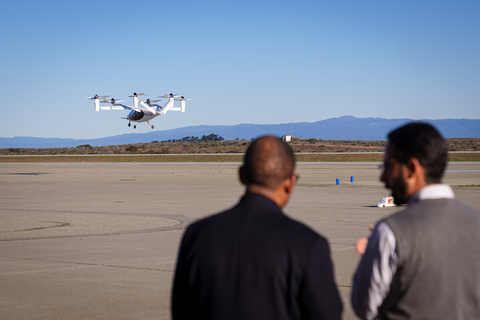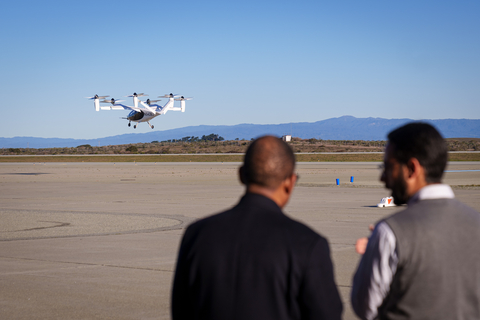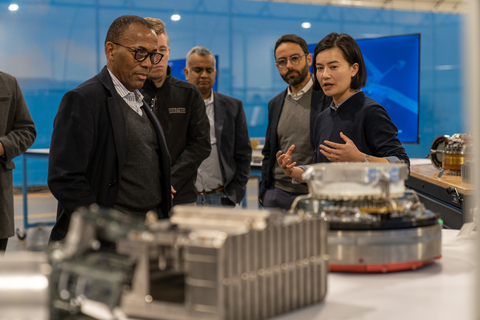SANTA CRUZ, Calif.--(BUSINESS WIRE)--Joby Aviation, Inc. (NYSE:JOBY), a California-based company developing all-electric aircraft, today announced it has completed the second of five stages required by the Federal Aviation Administration (FAA) to certify its revolutionary electric vertical take-off and landing (eVTOL) aircraft for commercial passenger use.
In the second stage of the type certification process, a company identifies the ways in which it will demonstrate it has met the regulatory intent of the safety rules (“Means of Compliance”) that were defined during the first stage of the process (“Certification Basis”).
Joby believes it is the first eVTOL company to reach this milestone, having also been the first eVTOL company to complete stage one and have its Certification Basis published in the Federal Register. Achieving this goal moves Joby one step closer to its target of launching commercial passenger service by 2025.
“Certification is an integral part of everything that an aerospace company does and with the achievement of this critical milestone, we’re now able to confidently focus our efforts on closing the remaining certification plans and completing the testing required to certify our aircraft,” said Didier Papadopoulos, Head of Aircraft OEM at Joby.
“We’re grateful for the FAA’s dedication to the safe introduction of eVTOL technology and their commitment to supporting continued US leadership in this sector,” he added.
Joby has also already made substantial progress in the third stage of the certification process (“Certification Plans”), with four area-specific certification plans (ASCPs) submitted to the FAA as of November and the Company’s first equipment-level qualification test plan submitted to the FAA, enabling for-credit qualification testing to proceed. Progress also continues in stage four (“Testing and Analysis”) and stage five (“Show and Verify”). Joby provided a summary of the five stages of type certification in its Q2 2022 Shareholder Letter.
It is typical for a small portion of the Means of Compliance to remain open to allow for further collaboration on minor design changes and improvements that may occur later in the certification process. With 94% of our Means of Compliance now accepted by the FAA, Joby considers the second stage essentially complete.
About Joby
Joby Aviation, Inc. (NYSE:JOBY) is a California-based transportation company developing an all-electric, vertical take-off and landing aircraft which it intends to operate as part of a fast, quiet, and convenient service in cities around the world. To learn more, visit www.jobyaviation.com.
Forward-Looking Statements
This press release contains “forward-looking statements” within the meaning of the “safe harbor” provisions of the Private Securities Litigation Reform Act of 1995, including but not limited to, statements regarding the development and performance of our aircraft, our regulatory outlook, progress and timing, including our expected progression through the stages of certification and our expectation to start commercial passenger service in 2025. You can identify forward-looking statements by the fact that they do not relate strictly to historical or current facts. These statements may include words such as “anticipate,” “estimate,” “expect,” “project,” “plan,” “intend,” “believe,” “may,” “will,” “should,” “can have,” “likely” and other words and terms of similar meaning in connection with any discussion of the timing or nature of future operating or financial performance or other events. All forward-looking statements are subject to risks and uncertainties that may cause actual results to differ materially, including: our ability to launch our aerial ridesharing service and the growth of the urban air mobility market generally; our ability to produce aircraft that meet our performance expectations in the volumes and on the timelines that we project, and our ability to launch our service; the competitive environment in which we operate; our future capital needs; our ability to adequately protect and enforce our intellectual property rights; our ability to effectively respond to evolving regulations and standards relating to our aircraft; our reliance on third-party suppliers and service partners; uncertainties related to our estimates of the size of the market for our service and future revenue opportunities; and other important factors discussed in the section titled “Risk Factors” in our Annual Report on Form 10-K, filed with the Securities and Exchange Commission (the “SEC”) on March 28, 2022, and in future filings and other reports we file with or furnish to the SEC. Any such forward-looking statements represent management’s estimates and beliefs as of the date of this presentation. While we may elect to update such forward-looking statements at some point in the future, we disclaim any obligation to do so, even if subsequent events cause our views to change.






